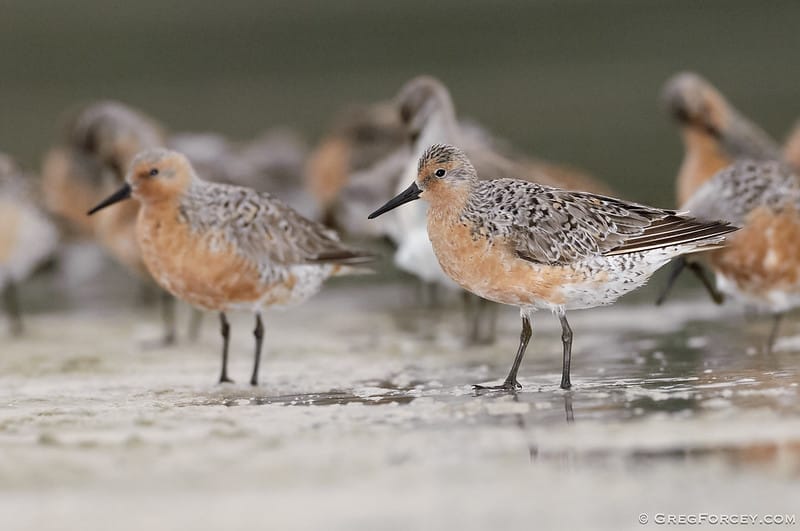How to write a comment letter for a proposed federal rule change
Proposed changes to environmental laws often negatively impact the ecosystems and animals they are trying to protect. Here, I provide guidance for submitting comment letters for proposed rule changes so they have maximum credibility when they are reviewed by regulators.

With the recent proposed rule change to the definition of harm in the Endangered Species Act (ESA) to exclude habitat, there was considerable interest in submitting public comments to oppose the change. After the comment period closed, there were over 215,000 comments on the proposed rule, with most of the comments opposing the change. In seeking guidance on submitting a comment for a proposed rule, I found the video below from the International Crane Foundation helpful for constructing a comment letter. The video outlines the importance of the Endangered Species Act, why the proposed rule change is problematic for conservation, references supporting a position for opposing the change, and how to structure a comment letter. While the video focuses on proposed changes to the ESA, the recommendations apply to any conservation-related proposed rule change.
Below is a summary of my main takeaways from the video for crafting a great comment letter for a proposed rule change. In addition to the key points from the video, I also provided the text of the letter I submitted for the proposed rule change to serve as example content.
Content of a comment letter for a proposed rule change
Identify who you are
- Name
- Where are you from?
- What is your profession?
Example:
My name is Greg Forcey. I am a Certified Wildlife Biologist® with The Wildlife Society, and I’ve dedicated my career to studying and conserving wildlife in the United States, including endangered species.
Your position on the proposed rule change
- Be direct and clear
- Focus on your position and not your feelings
- Don’t insult the current administration or people in the government
Example:
I am concerned about the proposed changes to the definition of “harm” in the Endangered Species Act (ESA). This change will significantly affect endangered species because their habitat will be excluded from protection. Unintentional killing of endangered species will also be permitted under this proposed rule change.
Provide details on your position and why it’s justified
- Justify your position
- Focus on statements supported by evidence
- Avoid complaining, berating the government, or personal attacks
- Provide citations for your position (this often-overlooked, but crucial step is critical because the USFWS is mandated to consider the best available science)
Example:
The change in definition of “harm” is inconsistent with the intent of the Endangered Species Act (the protection of endangered species). With habitat loss being the biggest threat to approximately 85% of the species listed under the ESA (Wilcove et al. 1998), this change in “harm” definition will have a deleterious effect on those species by allowing habitat destruction. With this proposed order, freshwater diversions, wetland drainage, land development, power line collisions, and other disturbances at key nesting, feeding, and roosting sites for endangered species would be expected to increase and impact them.
In addition, I am concerned that the proposed change to “harm” will create legal loopholes and escapes for people who kill endangered species by allowing them to claim they didn’t mean to do it. Without the deterrent of law enforcement, endangered species would face additional challenges to improving their populations and eventually being delisted.
Finally, there is no scientific basis to support this proposed rule change. The USFWS’s website notes that the ESA has saved 99% of the species it protects from extinction (USFWS 2025). This evidence supports enforcing and leaving the ESA as is, and not weakening it with the proposed rule change.
Give a call to action
- Suggest the USFWS withdraw the proposed rule
- Or suggest changes to the proposed rule (if applicable)
Example:
Given the deleterious effects of the proposed change to the definition of “harm” and the scientific evidence against the change, I urge the USFWS to reject the proposed rule to change the definition of “harm.”
Sign your name and provide references
Example:
Sincerely,
Greg Forcey, PhD, CWB®
Gainesville, Florida
References
[USFWS] US Fish and Wildlife Service. 2025. Why save species? https://www.fws.gov/story/why-save-species. Accessed 19 May 2025.
Wilcove, D.S., D. Rothstein, J. Dubow, A. Phillips, and E. Losos. 1998. Quantifying threats to imperiled species in the United States. BioScience 48(8):607-615.
Final Suggestions
- Avoid overly aggressive comments as they risk not being counted
- Avoid copy/pasting a form letter, as the same comment given multiple times may only be counted as one comment
- Provide a unique story as to the importance of the rule change to you and why it should be changed/withdrawn
- Post on social media about the proposed rule change and encourage followers, friends, and family to submit comments.
- Consider adapting your letter to send to your US Representative and US Senators to show your support or opposition to the proposed rule change
- Submit comments directly on the Regulations.gov website.
The bottom line
While the comment period for the proposed rule change has passed, I expected there to be numerous other opportunities to submit comments on similar environmental regulations in the future. I hope the suggestions in the video and summarized in this post have provided a helpful template for submitting your comments in the future. The opportunity to submit public comments on proposed federal rule changes is a privilege, much like the ability to vote in elections and choose leaders. We should not squander this privilege and should choose to be active participants in society by providing feedback on proposed rule changes that will adversely impact our environment.





